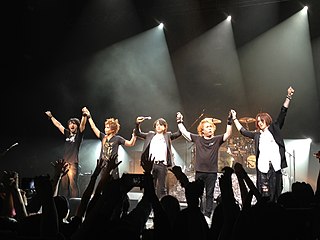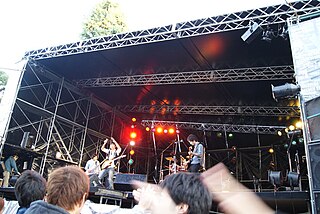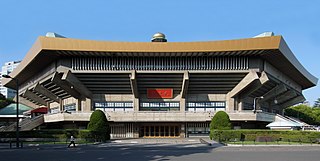
Trans-Siberian Orchestra (TSO) is an American rock band founded in 1996 by producer, composer, and lyricist Paul O'Neill, who brought together Jon Oliva and Al Pitrelli and keyboardist and co-producer Robert Kinkel to form the core of the creative team. The band gained in popularity when they began touring in 1999 after completing their second album, The Christmas Attic, the year previous. In 2007, the Washington Post referred to them as "an arena-rock juggernaut" and described their music as "Pink Floyd meets Yes and the Who at Radio City Music Hall." TSO has sold more than 10 million concert tickets and over 10 million albums. The band has released a series of rock operas: Christmas Eve and Other Stories, The Christmas Attic, Beethoven's Last Night, The Lost Christmas Eve, their two-disc Night Castle and Letters From the Labyrinth. Trans-Siberian Orchestra is also known for their extensive charity work and elaborate concerts, which include a string section, a light show, lasers, "enough pyro to be seen from the International Space Station", moving trusses, video screens, and effects synchronized to music.

Shonen Knife is a Japanese pop punk band formed in Osaka, in 1981. Heavily influenced by 1960s girl groups, pop bands, The Beach Boys, and early punk rock bands, such as the Ramones, the trio crafts stripped-down songs with simplistic lyrics sung both in Japanese and English.

Every Little Thing is a pop/soft rock duo from Japan who debuted in August 1996 with the release of their first single called "Feel My Heart". Their name is usually written in English, and only rarely in katakana. They gained massive popularity in the late 1990s and early 2000s. As of 2013, Every Little Thing has sold over 23 million copies of singles and albums throughout Japan. Their second studio album, Time to Destination, is the best-selling album of the band with over 3.5 million copies sold, and became the 10th best-selling album of all time in Japan.

Luna Sea is a Japanese rock band formed in Kanagawa Prefecture in 1989. Due to the use of make-up and costumes early in their career and their widespread popularity, they are considered one of the most successful and influential bands in the visual kei movement. Throughout the mid-1990s they used significantly less make-up, and after a one-year break in 1998, came back with a more mainstream alternative rock style and toned down their on-stage attire. When they disbanded in 2000, they left a big mark on the Japanese rock scene. In 2003, HMV Japan ranked Luna Sea at number 90 on their list of the 100 most important Japanese pop acts.
Siam Shade is a five-piece Japanese rock band, formed in Tokyo in 1991. They broke onto the visual kei scene alongside a multitude of other artists in the early 1990s and enjoyed a decade of relative popularity before disbanding in early 2002. The members have reunited several times since 2007 for one-off concerts and short tours. Outside Japan, Siam Shade is best known for "1/3 no Junjou na Kanjou", one of the many ending themes of the Rurouni Kenshin anime.

Tomoyasu Hotei, also known simply as Hotei is a Japanese musician, singer-songwriter, composer, record producer and actor. With a career spanning more than 35 years, Hotei claims record sales of over 40 million copies and has collaborated with acclaimed artists from around the world. Hotei first rose to prominence in the 1980s as the guitarist for Boøwy, one of Japan's most popular rock bands, before starting a solo career.
Eikichi Yazawa is a Japanese singer-songwriter, and important figure in Japanese popular music.

Zemfira, born Zemfira Talgatovna Ramazanova is a Russian rock musician. She has been performing since 1998 and has been popular in Russia and other former Soviet republics. To date Zemfira has sold over 3 million records.

Vitáliy Vladasovich Grachyov, known professionally as Vitas or Russian Chayanne, is a Russian singer. He is known for his unique falsetto and for possessing a near five-octave vocal range, which he displays when performing his "turkey call" in "The 7th Element" and his trademark falsetto choruses. His eclectic musical style incorporates elements of techno, dance, classical, jazz, and folk music. His song "Opera 2" and the music video for "The 7th Element" went viral across various social networks frequently, accounting for much of his worldwide recognition.

Hiroshi Morie, known exclusively by his stage name Heath, is a Japanese musician, singer and songwriter. He is best known as the bass guitarist of the heavy metal band X Japan. He joined the group in 1992, replacing Taiji Sawada on bass, and stayed with them until their dissolution in 1997 and reunited with the band from 2007 onward.

"Morning Coffee" (モーニングコーヒー) is a song by J-pop idol group Morning Musume, released as their first official single on January 28, 1998 as an 8 cm CD. It sold a total of 200,790 copies. In 2004, it was re-released as part of the Early Single Box and again in 2005 as a 12 cm CD. The lead vocalist of the single was Natsumi Abe.
Tomoaki Hamatsu, better known as Nasubi(なすび, "Eggplant"), is a Japanese comedian.

The Gazette, originally known as Gazette, is a Japanese visual kei rock band from Kanagawa formed in early 2002. The band is currently signed to Sony Music Records.
Raphael was a Japanese visual kei rock band that formed in 1997, when the members were only 15. They disbanded in 2001, after guitarist Kazuki died at age 19. The remaining members reunited Raphael for two concerts in 2012 and for a 2016 tour.

Ryuichi Kawamura is a Japanese musician, singer, songwriter, composer, record producer, actor, author and race car driver. He is best known as lead singer of the rock band Luna Sea. After the band disbanded in 2000, Kawamura continued his successful solo career. In 2005 he formed Tourbillon with fellow Luna Sea member Inoran and Hiroaki Hayama. He has recently rejoined Luna Sea, as they reunited in August 2010.
KinKi Kids are a Japanese duo consisting of Koichi Domoto and Tsuyoshi Domoto under the talent agency Johnny & Associates. Although the members share the same surname, the only relation they have to each other is that they both hail from the Kinki region, hence the duo's name. KinKi Kids hold the Guinness World Records for having the most number of consecutive No.1 singles since debut.

Led Zeppelin's 1972 Japanese Tour was the second and final concert tour of Japan by the English rock band. The tour commenced on 2 October and concluded on 10 October 1972.

Nico Touches the Walls is a Japanese rock band formed in 2004. The band members are: Mitsumura Tatsuya, Sakakura Shingo, Furumura Daisuke & Tsushima Shotaro. In the same year, they won the Lotte Prize at the Yamaha Teen Music Festival. Rising quickly, they signed to "Senha & Co." before signing to Sony Music Japan's Ki/oon Records in 2007. Their debut single, in a major label, "Yoru no Hate", was released in February 2008.



















